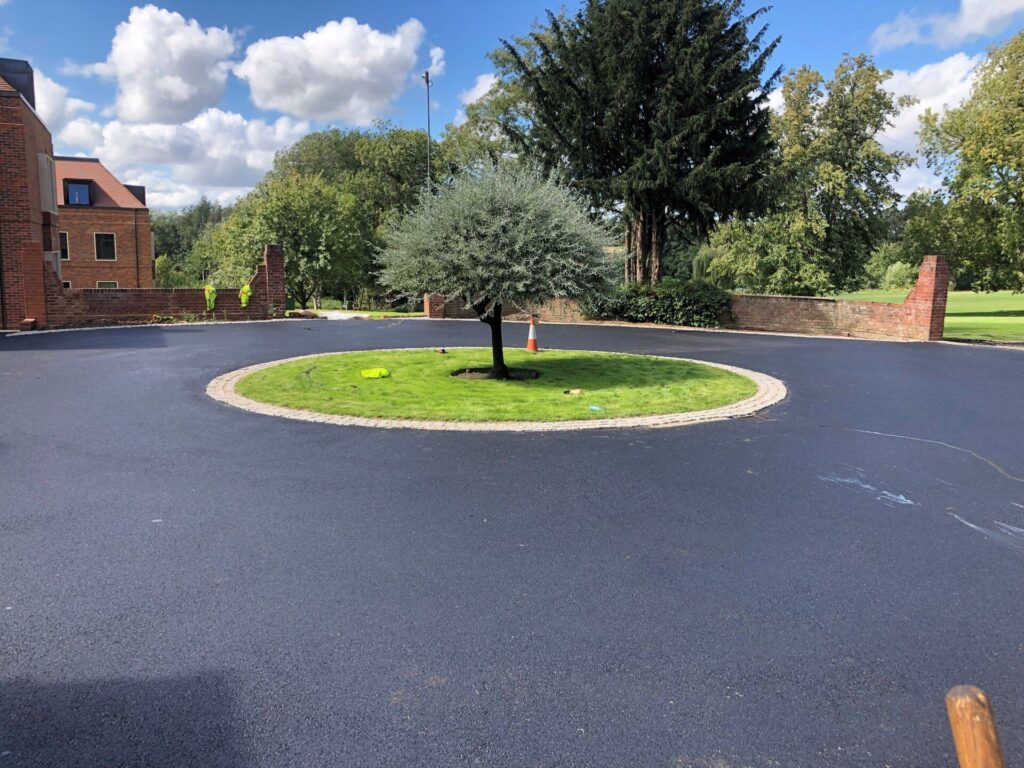Planning a driveway might seem like an easy job but there are lots of things to consider and decisions to be made. Your driveway is the first thing you see when you come home, and the first impression you give of your house, so you want to make sure it’s as well thought out as possible. That’s where this blog comes in!
At Hazel & Jefferies we really know our driveways. That’s why we’ve laid out some of the most important questions to think about answering when planning your driveway, to take the guesswork out of it and let you plan your driveway with confidence.
The first and most important thing you should think about when planning your driveway is what you need to get out of it. What will it be used for? How many cars will need to be able to park on it at the same time? Do you regularly have visitors and guests who will need to park there too? Do you need to factor in extra space so your cars can get out in any order and not block each other in, or is that not necessary for you?
If you have older children or teenagers you might also need to consider additional cars in the near future. If you are looking to sell your house you might need to focus more on the look of your driveway to boost the “kerb appeal” and value of your property.
Once you’ve decided how many cars you need to be able to park on your driveway, you need to make sure your driveway has enough space for all of them, allowing for car doors and garage doors to open easily too. You also need to make sure you can easily access your driveway from the road and vice versa, with enough turning space and visibility.
A key factor to consider when planning a driveway is how it will fit in with your personal style and the style of your house. Are you looking for something that looks classic and traditional or something a bit more modern? There is a huge range of different surfaces and materials to choose from, including tarmac, asphalt, gravel, concrete paving and stone paving to name a few. Each comes with its own distinct look and feel, so it’s worth doing a bit of research to work out what appeals to you and will fit in best with the aesthetic of your home.
As well as the material you also need to consider the layout of your driveway. Do you want it to be curved or straight? Does it need to align with a certain part of your garden or house? You will be limited by the amount of space you have available to play with, but the layout of your driveway can have a big impact on the feel of the front of your house.
Obviously, different materials cost different amounts of money, so it’s worth taking your budget into consideration when making decisions about your new driveway. Other things which will affect the cost of your driveway include the size of the area being turned into the driveway and the prep work required to get this area ready.
There are lots of different ways in which you can make your driveway your own with driveway accessories. These range from outdoor lighting and built-in LEDs to deciding on the style of kerb you want at the edge of your driveway. You can also make a big difference to your driveway by making it a feature of your garden rather than just a block through the middle of it. You can do this by lining it with plants or by matching it to existing features in your garden such as a pathway.
Trees and shrubs, as well as other plants, are a great way of blurring the lines between garden and driveway and adding some personality to your outdoor space. They are also a really useful way of creating some privacy for you and your home.
However, laying a new driveway could damage the roots of trees or shrubs which you already have nearby, and the roots of newly planted trees and bushes could come up through your lovely new driveway and cause damage. If you’re unsure it’s always a good idea to seek advice from experts about what will work best for you.
It’s always a good idea to check with your local council as to whether you need planning permission for your new driveway or not, as the rules and regulations can vary. However, as a general rule, if you don’t need to use any existing drainage systems to deal with any rain runoff from your driveway you don’t need to get planning permission. So in general as long as you can solve your own drainage problems you can go ahead without planning permission, but it is always best to check as your local council might have other ideas!
Drainage is a very important consideration when designing your new driveway. You need to make sure that surface water won’t flow towards your house and cause any damage, and as we said above it can affect whether or not you need planning permission. Talking to experts about the specifics of your driveway and your drainage needs is the best way to make sure you won’t cause yourself any problems or end up with any nasty surprises.
If you’re planning a driveway, get in touch with us at Hazel & Jefferies today and we’ll be more than happy to offer our advice and expertise, and help you get started on the driveway of your dreams!

